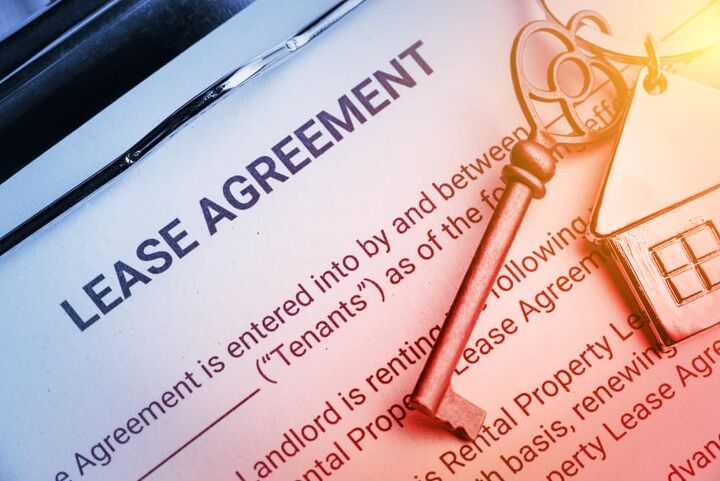What A Landlord Cannot Do (A Guide to Renters' Rights)

If you feel that your landlord is overstepping his boundaries, it will be helpful to know what exactly a landlord cannot do. There are, in fact, a surprising number of things that a landlord cannot do. While some of these things seem like they should be common knowledge, others may be more surprising.
A landlord cannot enter a property occupied by tenants without warning, freeze tenants, unfairly raise rent, discriminate against tenants based on race, gender, class, or sexual orientation, or evict without the proper juridic notice. What a landlord cannot do also depends on rental laws which depend on state laws. Make sure to do extensive research before renting.
Here are some of the things that a landlord cannot do.
1. Entering Without Giving Notice
There are some instances when a landlord is allowed to come into a rental property. If a property is suspected to have been abandoned, for example, the landlord is free to come and check things out.
Another circumstance that calls for a visit is if someone in the neighborhood complains. Whether it is an unkempt yard, disturbing behaviors from tenants, or anything else relating to the security and well-being of the property and those around it, it is the property owner’s responsibility to make sure things are going well.
What a landlord cannot do is come into a tenant’s home for personal reasons or to ‘check on’ a tenant. The landlord must give notice and tell the tenant why they are coming to the home. How many days’ notice a landlord must give depends on the state the property is in.
Different states give landlords varying degrees of leniency so if you are unsure about the legality of your landlord’s visits, check with the local laws.
2. Illegal Evictions
Evictions carried out in ways other than the predetermined process set up by the legal system are illegal in most cases. As a result, landlords are not allowed to evict their tenants for reasons not specified in the law. They are also not allowed to evict tenants in ways that go against the norm.
There are many reasons that a landlord can evict a tenant. These include debt, destructive habits, loss of property value, and more. A landlord cannot, however, evict for how they feel about someone, the tenant’s race, color, religion, or social background.
A property owner is also prohibited from forcing evictions on their tenants to ‘make room’ for other tenants. If you feel that you were (or are being) evicted for reasons out of your control, it is always best to seek the advice of a legal professional.
3. Retaliatory Evictions
Landlords cannot ‘get back’ at their tenants through retaliatory evictions. There are often times when a tenant wishes to exercise a right, such as extending a lease, lodging a formal complaint, requesting costly repairs, etc.
While most property owners understand the rights of their tenants, not all do. You will see some landlords come to the conclusion that it would be easier to evict that tenant instead of solving the problems that the tenant complained about.
When a tenant can prove that the eviction came from a retaliatory reaction, the court will side with that tenant.
4. Sudden Changes to the Lease
Another thing that you should never see from a landlord is a sudden change to your lease. The lease is a written contract that you sign with your landlord before you first move in. That contract is valid until the date specified within that same contract.
If your landlord tries to make you sign a new contract, be very cautious about what changed. Not all contractual changes are detrimental to the tenant. Some can, in fact, benefit both parties with improved wording, added amenities, etc.
Your landlord should tell you exactly what changed, outline the changes to the new contract right in front of you, and then give you the option to say yes or no.
When landlords are not forthcoming about mid-term changes to a lease, their reasons for making those changes are often geared more towards the landlord than they are for you.
5. Withhold Security Deposit Without Stating Reasons
It is also not allowed for your landlord to keep your security deposit without giving you a detailed description of why they are withholding your money.
Landlords can keep the security deposit, but their reasons must be in line with the contract that the tenant signed. Normal wear and tear, for example, is not a reason listed under reasons to withhold a security deposit. Nor is being late on rent in many cases.
Landlords should always be ready to supply documentation and other information to their tenants if they choose to keep the security deposit. Without it, they cannot keep it.
6. Stop Accepting Rent Before End of Lease
A landlord cannot stop accepting rent before the end of the lease without going through the normal processes of ending a rental agreement.
There are times when landlords will use their refusal to accept rent as grounds to kick tenants out of their homes. Of course, this is both illegal and immoral, but it does happen. Landlords who stop accepting rent payments before the end of the lease do so in an effort to freeze out their tenants.
There are many ways to freeze out a tenant and making them feel like their rent is no good anymore is one of them. There are laws protecting tenants in these situations and it is always good to read up on them if your landlord has told you to stop making rental payments.
7. Demanding Changes to Personal Life
Demanding tenants to make changes to their personal lives is yet another thing that landlords cannot do. Your landlord does not have the right to tell you whether you should have children, what types of people you should involve in your life, or what type of job you should have.
As Long As you are keeping up with your side of the agreement by not damaging the property, causing a disturbance to those around you, or getting behind in payments, the landlord should have no problem with you personally or otherwise.
Landlords who do demand changes to their tenant’s personal lives often find themselves and Court. Tenants can easily sue a landlord for psychological stress and other things, depending on the severity of the landlord’s actions.
8. Charging Extra Fees Arbitrarily
Being charged with extra fees arbitrarily is another issue that many tenants are faced with. In a similar way that landlords cannot withhold your security deposit without giving you proper details, they also cannot add on extra fees without properly disclosing where those fees are coming from.
Whether a landlord is just trying to get more money from their tenant or including their tenant in fees and charges that are raised for them on their end, the landlord must give notice to their tenants about any fees that they will charge, what the fees are for, and when they will need to be paid.
It is always a wise choice to request any additional fees to be added to the rental contract in writing to formalize the process. Not only does this encourage your landlord to think carefully about exact dollar amounts for each of the fees added, but it also makes it more difficult to keep on adding in the future.
9. Raising Rent Without Proper Notice
The same is true for raising the rent. Any rent increases must be handled appropriately. To raise the rent, landlords must give proper notice which allows their tenants to restructure their budgets and plan for the new rent figure.
How much notice needs to be given varies from state to state but usually anywhere from 1 to 3 months is considered standard practice. Any surprise increases in rent should be considered suspect, in which case it is perfectly normal and fair to ask your landlord for a detailed description as to why the new rents are what they are.
10. Discriminating Against Tenants
Discrimination is another area that landlords must be very careful about. There are many laws protecting people from all walks of life from being discriminated against by landlords.
Discriminating against a person’s race, religion, place of origin, and sexual orientation it’s not only illegal but can also cause pain and suffering to those at the receiving end of it. Tenants who are discriminated against have grounds to press charges against their landlords.
Related Questions
Can my landlord kick me out of my home when my lease is up?
The short answer is yes. However, if your lease has expired and you continue to pay your rent, you become a holdover tenant. As a holdover tenant, you may continue your lease on a month-to-month basis, until the landlord wants you to move out.Whether your landlord wants to ask you to leave when the lease is up is largely up to your relationship with the landlord and if there are any changes that the landlord wishes to make to the property.
How can I sue my landlord?
To successfully sue your landlord, you must have a case against him or her. As your complaint will be solved in the court system, you will need evidence that proves wrongdoing on the part of the landlord.If your landlord is doing something that they should not be doing, be sure to document everything and make sure that you do not retaliate in ways that will also put you at fault. If you are being victimized by your landlord, the courts will see it.

Benjamin is a proud homeowner who loves to write about DIY projects and home improvement projects. Traveling, perfecting his home, and spending time with his family are just a few of the many things that keep him inspired.
More by Benjamin Wright



























